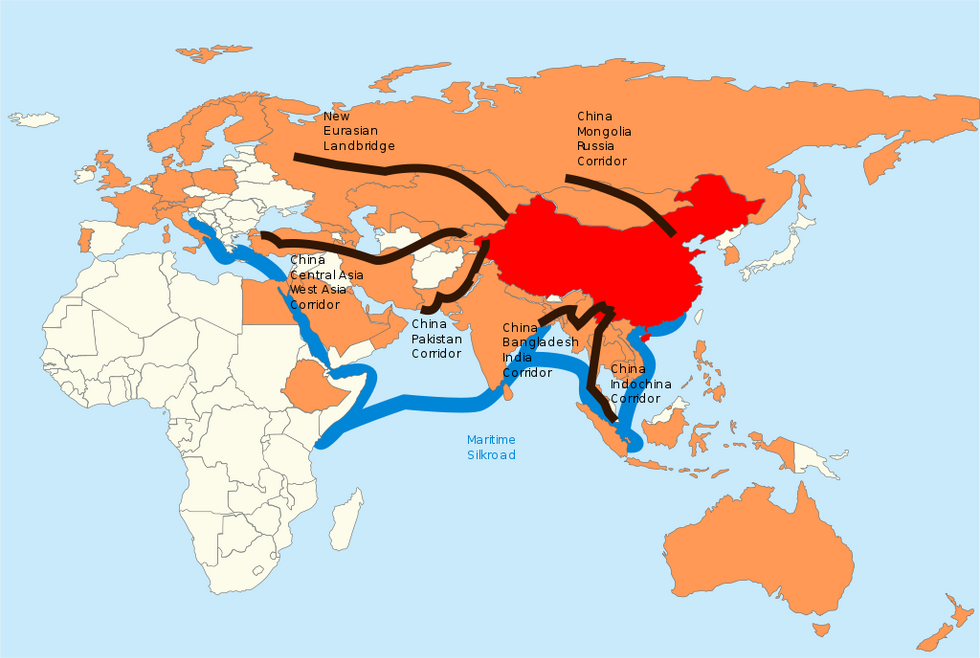In an international world order seemingly characterized by states engaging in realist practices, when a state looks to use its resources and power for the benefit of others, their motives and actions should be met with caution. If states confront a zero-sum world, then would the gain states experience as a result of China sharing its wealth with the Belt and Road Initiative (BRI) not equate to a loss for China? Foreign policy initiatives typically involve some level of quid pro quo, as each state looks to advance its own interests. It should be expected of states to behave rationally, to maximize their gains and minimize their losses, and for China, the BRIaligns with this realist proposition. Thus, it seems likely that the BRI, in practice, puts China at more of an economic and political advantage than the states it partners with — and China is aware.
Rise of China in the International System
Just as the United States dominates the western hemisphere, China appears to be trying to dominate Asia as realist theory would propose. The BRI, with the aim of economic dominance, is undoubtedly a form of colonialism.
China looks to be creating coalitions with other states with the Belt and Road Initiative while edging out Russia's economic power in Asia and shifting part of the world economy. These coalitions will be helpful to the smaller powers as China continues to grow economically as a threat to the current unipolar world stage. Yet, despite the advantages of having infrastructure development needs met, there should be hesitation in accepting Chinese development assistance.
Through creating trade networks, states politically align themselves with China and become more dependent on China's economy, thus increasing China's leverage over these states — publicly speaking out against China would work to turn away a key economic power. For this reason, policies of partnered states may be influenced to support the interests of China.
Though it seems unlikely China will become a hegemon given the growth in power of other states, a power transition will occur nonetheless. With this, there will be a struggle to reshape the rules and institutions in the international system and the support of BRI-partnered states may encourage China to challenge the interests of other states.
It would be naïve to think that, although China is using international institutions to promote its rise to power, China may not try to overturn the international system. Thus, it is essential for the United States in response to China, as hegemon, to work to modify the rules and institutions of the international system to make them more open emerging powers.

















